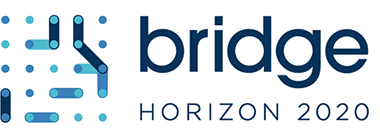IElectrix partners involve customers in the project to build solutions in a cooperative way, appropriate for every specific environment.
The deployment of micro-grid solutions is still today often introduced following an inverted pathway that sees the technology and systems considerations prioritised, with stakeholder engagement only considered as a potential next step. This approach often results in low acceptability even of technologies and services that can have a positive local impact.
In contrast, IElectrix challenges this status quo approach by actively working to incorporate the human factor and the local context (e.g. key stakeholders, motivations, relationships, power structure, legacy, drivers and barriers) in the design and deployment of the services tested. Through engaging the local communities from the start, more effective and holistic strategies that consider not only the project’s goals, but also those of the local communities, can be developed thereby maximising social acceptance and ultimately the impact of the deployed technology and potential of the surrounding business models.
Geco Global, as responsible for the engagement strategies in each of the 4 demonstrations, has designed and implemented a model to facilitate the exchanges between local stakeholders, network operators and technology providers, and to map their unique conditions, challenges, needs and motivations. As a result of this deeper understanding of the social and cultural context of the demonstration environment, the IElectrix team is then empowered to provide local solutions to local problems.
The IElectrix engagement model is characterized by three broad phases: ‘identify and iterate’, ‘design and implement’, and ‘reflect’. Together, these steps create a customizable framework that facilitates the collection, analysis, and application of community stakeholders and demonstration leaders insights towards the broader project’s goals. Feedback loops ensure the resulting strategies are updated if need be.
Although negatively impacted by the epidemic, the ‘Identify and iterate’ phase has now been successfully completed for all pilots and engagement goals identified via a series of participative community engagements (e.g. workshops, site visits, interviews) involving key local stakeholders, demonstration partners and Geco Global. Pilot contexts have proven unique and so have demonstration-specific goals; therefore, exact engagement strategies will differ across pilots. Overall, they will look to support local communities and demonstration partners in 2 main ways:
- Awareness – engagement – communication – adoption: Help build the community’s visions and plans for the area’s clean energy transition (or build upon existing) in a way that involves a broad spectrum of all relevant stakeholders and communicate on how the IElectrix technology can contribute to these plans. Appropriate targeted messages, communication campaigns and activities will be organised to build broad local support for the project and the solutions tested.
- Consumer research – stakeholder feedback – user-centric technology – business modelling: First-hand feedback from pilot participants, local stakeholders and industry experts will be collected via agile participative engagement methods (e.g. user testing, co-creation, focus groups, information sessions) to feed into technology and service design so that associated future business models meet real market needs and expectations.
A key outcome of these activities will be to bring together stakeholders not traditionally perceived to be aligned to each other using a range of participatory and co-design methods that improve citizen participation in energy projects. Ultimately, besides smoothing pilot operations, we believe this will lead to the creation of novel user-centric solutions with meaningful benefits to the community and to the energy system and thus enhance acceptance and adoption of micro-grid and demand optimisation solutions in the pilot communities well beyond the project’s lifetime.
On the left of the picture: Indian demonstration. Top: Seminar on electrical safety and sustainability – (January 2020). Bottom: meeting between Ganesh Srinivasan (Tata Power DDL CEO), Pierre-Jacques Le Quellec (Project’s coordinator, Enedis) and their teams (February 2020)
On the right of the picture: German demonstration. Top: Workshop with RES entrepreneurs, technology providers and scientific institutions (December 2019). Bottom: Demonstration’s battery’s commissioning and meeting with Friedland’s mayor and inhabitants (September 2020)



